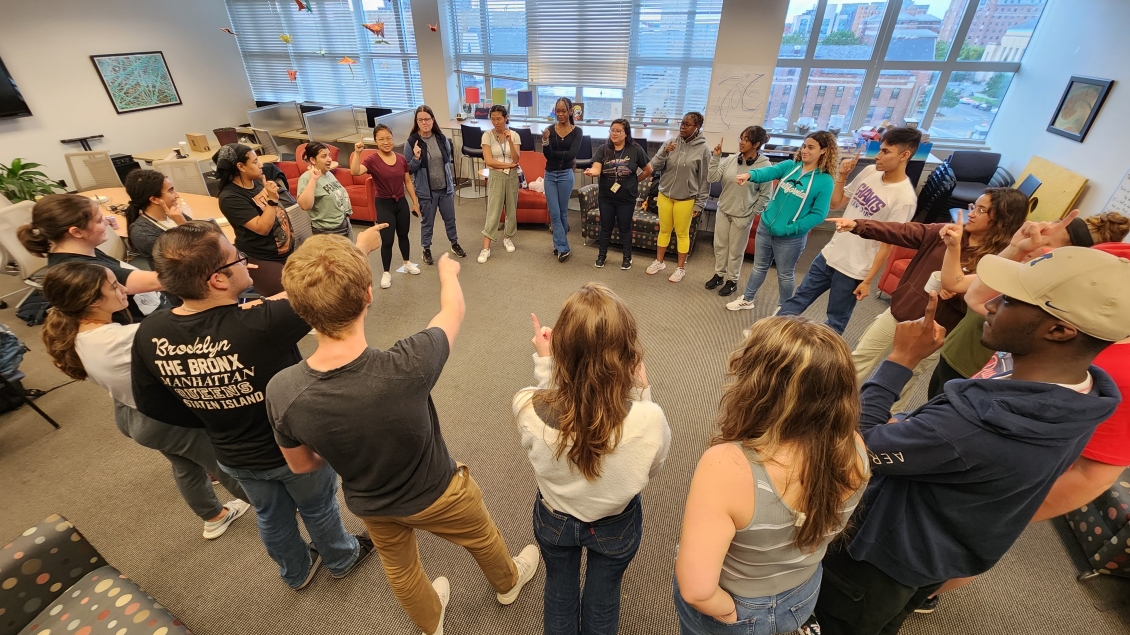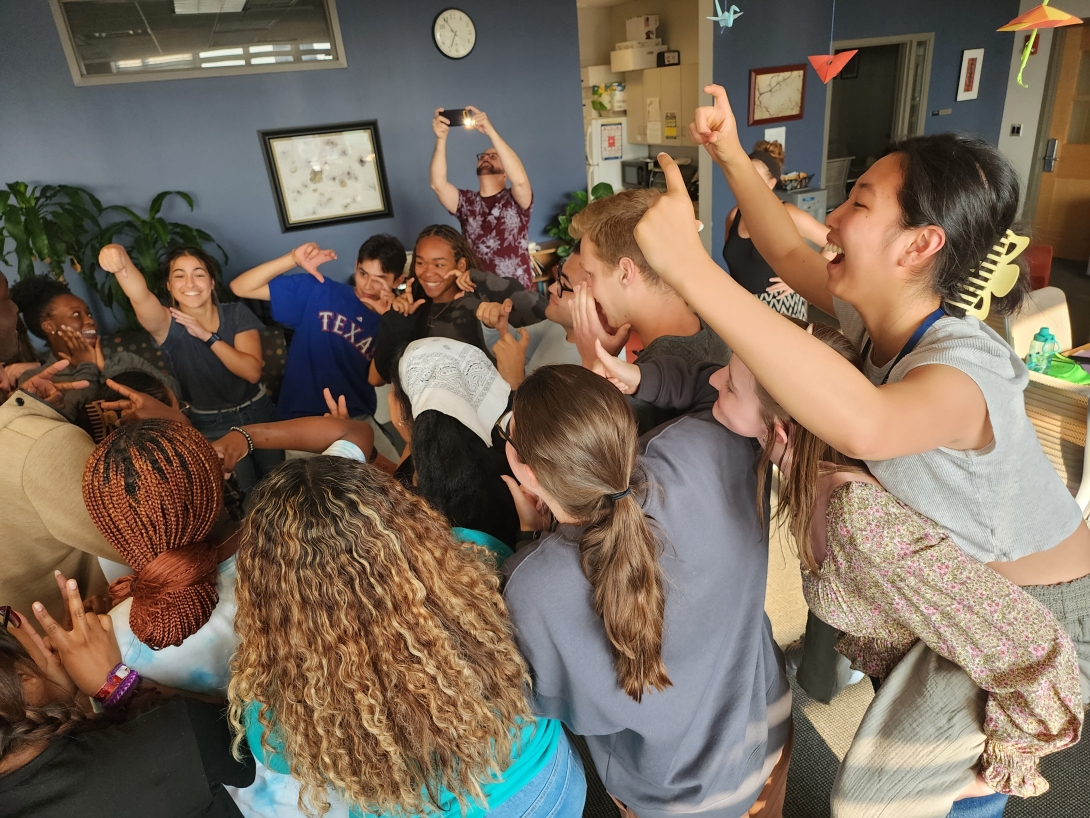
There are many opportunities across the university for professional development. The following areas are specific opportunities housed within the U-M Medical School Neuroscience Graduate Program.
The Neuroscience Graduate Program offers several fun and unique opportunities for professional development. Graduates can join an improv group, hone writing skills in workshops and more.
Effective communication is a fundamental skill in the life of a graduate student, reaching far beyond traditional science-communication skill sets. The majority of our everyday life, inside and outside of the laboratory, is improvisational (not scripted or rehearsed). Moreover, the “Yes And” philosophy behind improvisation is, at its heart, a collaborative experience that can enhance our sense of community and belonging.
Each month, students join a regional instructor in Applied Improvisation, to play games and debrief how the tools of improv theater apply to our academic spaces. Every event ends in laughter, reduced stress, and social bonding, all while building confidence, creativity, and agility in public speaking.

A casual gathering of students of reading papers, writing, and data analysis. Students have the option to work alone or in groups and elicit feedback.
We value opportunities for our students to participate in larger scientific meetings from the start of their PhD career. Funds are provided for students to attend the annual Society for Neuroscience meeting in their first year.
Additionally we support graduate student participation at SACNAS (Society for Advancement of Chicanos/Hispanic & Native Americans in Science) or ABRCMS (Annual Biomedical Research Conference for Minority Students). These meetings provide invaluable keynote talks, professional development sessions and networking opportunities. Interested students apply for funding to attend. Those selected will be encouraged to present scholarly work at the meetings and are required to complete guided reflections on professional development workshops that they attend.
The NGP has travel funds available through its R-25 grant (entitled “Increasing Diversity: Targeting Transitions in the Neuroscience Education Continuum”) to support graduate student participation at smaller conferences (e.g. Gordon Research Conference, Keystone Symposium, etc.). The awards are primarily directed for more senior students to attend conferences/symposia where an alternative source of funds is not available. These awards require an application and do not require that a presentation be made by the individual.
Faculty and NSF GRFP recipients host a workshop every fall to provide content about the application process including feedback on essays for those submitting an application. It is a requirement for all eligible NGP students to submit an application in their first- or second-year.
Students in the Neuroscience Graduate Program are active in a number of outreach activities that give back to the community.